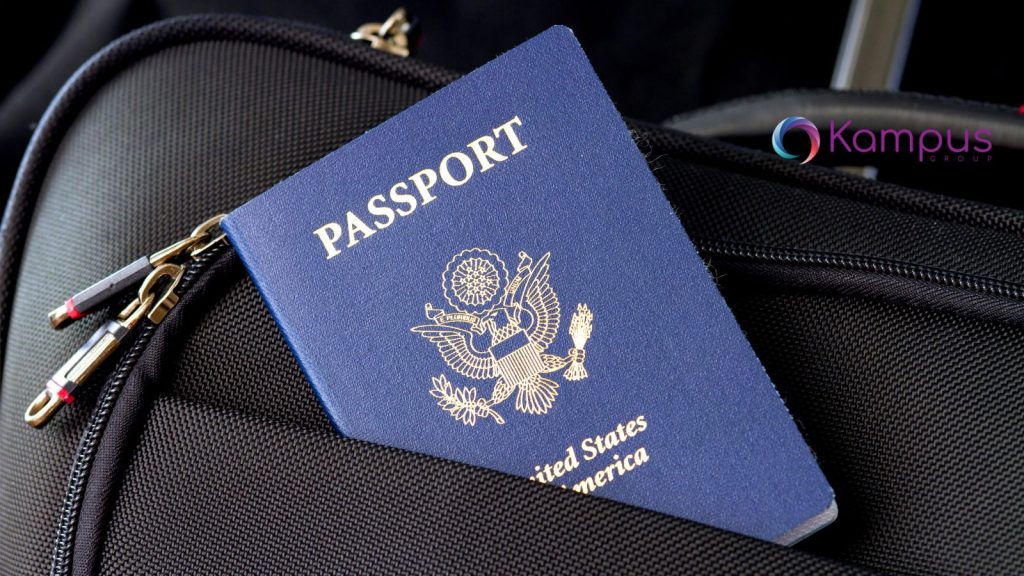Planning to study in the USA in 2025? You’re not alone. Thousands of Nigerian students choose the US every year for its world-class universities, wide range of academic programs, and career-building opportunities. But before you pack your bags, there’s one major step you must take: applying for a US student visa.
This guide will walk you through everything you need to know—from the types of student visas available to Nigerians, the cost, visa requirements, and how to apply successfully.
Why Study in the USA?
From Ivy League universities to top-tier research labs and internship opportunities with global companies, the USA offers Nigerian students:
- A flexible and innovative education system
- Access to leading programs in engineering, business, medicine, tech, and more
- Exposure to diverse cultures and networking opportunities
- Exciting post-study work options (like OPT and H-1B visas)
Whether you’re aiming for a Bachelor’s, Master’s, or vocational degree, the US opens doors—not just in America but across the globe.
Types of USA Student Visas for Nigerian Students
The US government offers three types of visas for students. The one you apply for depends on what you’re studying:
| Visa Type | What It’s For |
|---|---|
| F-1 Student Visa | For academic programs at US universities, colleges, or English language institutes |
| J-1 Exchange Visa | For cultural or academic exchange programs (e.g., visiting scholars, high school exchange) |
| M-1 Student Visa | For vocational and non-academic training (e.g., technical courses, trade schools) |
Most Nigerian students apply for the F-1 visa , especially for undergraduate or postgraduate programs.
Step-by-Step Guide to Apply for a US Student Visa (F-1)
1. Get Accepted into a SEVP-Approved Institution
Apply to and get accepted by a US institution certified by the Student and Exchange Visitor Program (SEVP). Once accepted, you’ll receive a Form I-20, which is required for your visa application.
2. Pay the SEVIS Fee
Make the SEVIS I-901 fee payment online (currently $350). Keep your receipt—it’s important for your interview.
3. Complete the DS-160 Form
Fill out the DS-160 Non-immigrant Visa Application Form online. After submission, print out the confirmation page.
4. Book Your Visa Interview
Schedule an appointment at the US Embassy in Abuja or Consulate in Lagos. Interview slots can fill up quickly, so book early!
5. Attend Your Visa Interview
Show up prepared with the necessary documents, confidence, and honesty. Be ready to talk about your study plans, funding, and reasons for choosing the US.
Documents Required for Nigerian Students
When applying for your visa, make sure you have:
- A valid Nigerian passport (at least 6 months beyond your stay)
- Form I-20 from your US university or college
- SEVIS fee payment receipt
- DS-160 confirmation page
- Recent passport-style photo
- Academic documents (transcripts, certificates, WAEC/NECO results)
- Proof of funds (bank statements, sponsor letter, proof of scholarship if any)
- Visa application fee receipt
Some applicants may be asked for additional documentation or to attend follow-up interviews. Be transparent and truthful throughout the process.
Cost of a US Student Visa for Nigerian Students
Here’s a breakdown of what to expect financially:
| Expense | Cost (USD) | Approx. Cost in Naira (₦) |
|---|---|---|
| SEVIS Fee | $350 | ₦525,000+ |
| Visa Application (DS-160) | $185 | ₦277,500+ |
| Medical & Interview Travel | Varies | ₦30,000+ |
| Total Estimated Cost | $535+ | ₦800,000+ |
Exchange rates vary, so it’s a good idea to confirm the lates rates before making payments.
Visa Processing Time
- You can typically expect a decision within 7–21 working days after your interview.
- During peak periods (May–August), expect longer wait times. Apply early!
Can I Work on an F-1 Visa?
Yes, but with some limits:
- Up to 20 hours per week on-campus during school sessions
- Up to 40 hours during holidays
- After graduation, you can apply for Optional Practical Training (OPT) and work for up to 12 months (or 36 months for STEM programs)
FAQs
1. Can I get a US student visa without TOEFL or IELTS?
Yes, some US universities waive language tests or accept Duolingo. But many still require proof of English proficiency.
2. How long is the student visa valid?
The F-1 visa is typically valid for the duration of your study program plus a 60-day grace period.
3. What happens if my visa is denied?
You can reapply. Make sure to address the reason for denial before scheduling another interview.
4. Can I take my spouse or kids with me?
Yes, under the F-2 visa. However, they cannot work while in the US.
5. Is financial aid available to Nigerian students?
Yes! Many US universities offer scholarships and assistantships. Some may cover full tuition and living costs.
Studying in the USA is a life-changing opportunity for Nigerian students. With proper planning, the right documents, and clear communication during your visa interview, you can be on your way to a top-tier education and a global career.
Need help figuring it all out? Kampus Group offers free expert counselling to help you choose the right university, prepare your documents, and ace your student visa interview.
Ready to get started?
Contact us on WhatsApp or Call: +234 904 443 7600 or +234 807 777 6639
Visit : https://kampus-group.com/ng/onboard

